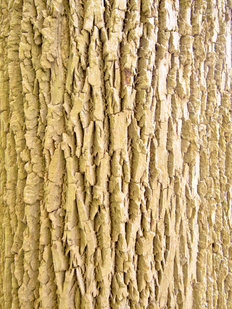| My first job out of college, long before I ever thought about rabbinic school, was working in the environmental movement. I spent eight years as a campaign staffer, a writer and editor for a national network of environmental groups. As such, I spent a lot of time thinking about and writing about the principles of environmentalism. There is a passage in this week's Torah portion (Shoftim) that the rabbis read as a statement of environmental principles. Perhaps it is ironic that, in context, the passage is a rule of warfare. Moses instructs the Israelites: |
The rabbis took this rule and expanded it into a broad principle which they called "bal tashchit," the prohibition against wasteful destruction. From it they decreed that it was a violation of the Torah to kill animals needlessly, to waste fuel oil, and otherwise to squander resources (B. Shabbath 67b, B. Hullin 7b, B. Kiddushin 32a). Maimonides expanded the principle of bal tashchit even further to include prohibitions against breaking vessels, tearing clothes, demolishing buildings, clogging wells, or wasting food (Yad, Hilchot Melachim 6:10).
It would be easy to see this law as a simple statement of prudence and frugality. Why spoil future opportunity with present excess? But the Torah makes it clear that the principle of bal tashchit is about more than mere thrift. Why should an army not cut down the trees around the walled city? It is not because the trees may prove more valuable for another use. It is because the trees cannot protect themselves, and therefore it is our obligation to care for them.
Are the trees of the field human beings that can flee into the city? No, of course not. We are in a position of power over the world of God's creation, so we must use that power with care and protect the world.
Our obligation to care for resources is not primarily because it will benefit us. It is because the world is not ours to use in whatever way we wish. The world of creation has its own value and integrity apart from its usefulness to us. The world God created owes us nothing; we owe God and the world everything.
As a writer for environmental campaigns, I usually tried to convince my readers that clean air, land and water would benefit them personally (and they do). However, there is also a greater truth. The world is not ours to desecrate and exploit. The most fundamental principle of environmentalism, right here in this week's Torah portion, is that we are servant's charged with the protection of a world placed in our safekeeping.
That should be a source of joy to us. We have been given a great gift. If we can keep it, we will delight in it. If we can remember who has given it to us, we will know ourselves to be blessed.


 RSS Feed
RSS Feed
